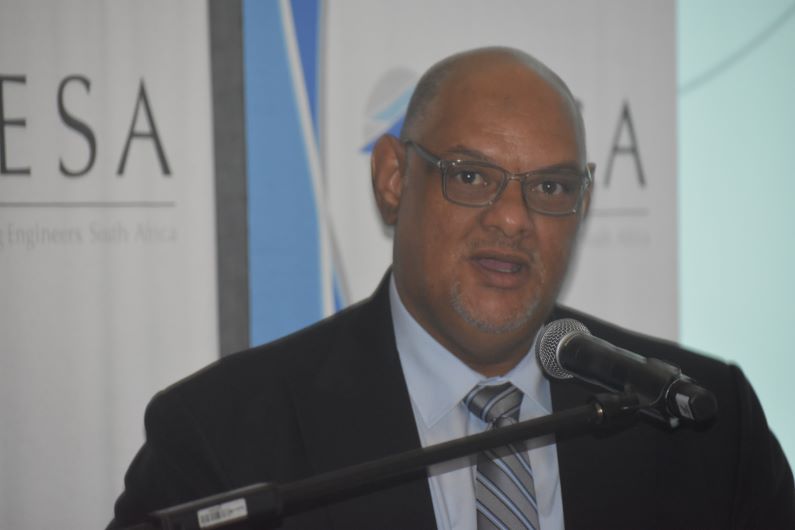
This is Part 1 of a two-part article.
Consulting Engineers South Africa’s (CESA) newly appointed president, David Leukes, together with chief executive officer Chris Campell, hosted a media event on 1 February for the Gauteng region, fielding a lively Q&A session:
Q: What projects is CESA involved in?
A: Our involvement in projects is multifaceted and operates on a partnership basis rather than a direct model. As an organisation comprising member companies, our primary focus lies in training initiatives, with the majority of our training efforts directed towards the public sector to enhance project delivery efficiency. We facilitate this process by engaging member companies to provide mentorship opportunities for recent graduates entering the public sector workforce. This initiative aims to bridge the gap in experience and exposure for these young practitioners, ultimately contributing to improved performance in their roles.
In terms of infrastructure development projects, our member companies take the lead. While we do not directly lobby for specific projects, we do provide contextual support. Within South Africa, our focus extends beyond just establishing new infrastructure. We emphasise the importance of maintenance, considering the longevity and functionality of existing structures. This dual approach addresses both the need for expanding infrastructure to accommodate a growing population and the necessity of preserving and upgrading existing assets.
Q: Procurement and digitalisation are crucial factors in industry transformation. How can procurement standards support the digital automation transformation of the built environment?
A: Procurement processes must uphold principles of fairness and accountability to combat corruption and ensure value for money, which ultimately enhances infrastructure quality. These same principles are vital in the context of digital transformation. Effective procurement, especially within government frameworks, serves as a foundation for successful digital initiatives. It requires not only adherence to standards but also significant investment in training and development to align with the evolving landscape of digital automation.
Q: CESA mentioned the exodus of engineers from the country, a concern echoed frequently within the engineering community. Can you provide some insight into the extent of this loss over recent years?
A: Anecdotal evidence suggests a significant outflow of skilled engineers, with many talented individuals seeking opportunities abroad, particularly in the UK. This trend is symptomatic of broader challenges facing the engineering sector, where professionals are employed across various industries, including consulting, manufacturing, and even financial services. Despite efforts to quantify this phenomenon through surveys and affiliations, capturing accurate data remains a challenge, as reasons for migration vary and many individuals eventually return. This pattern of migration isn’t new, reminiscent of previous waves where many sought opportunities elsewhere. While the allure of greener pastures may seem enticing, it’s essential to recognise the value of our own country and work towards creating an environment that retains talent. However, countering this trend requires addressing not only professional opportunities but also factors like quality of life. In response, many companies are implementing employee wellness programmes to enhance workplace satisfaction and foster a sense of belonging. These efforts aim to create environments where professionals can thrive internationally without necessarily leaving South Africa.
Continued in Part 2…
More news
- DOK-ING’s innovative electric mining equipment unveiled at ElectraMining
- CONCOR’S MASTERY IN FAST TRACK PROJECT IMPLEMENTATION UNDERSCORED BY SAFETY AWARD
- PROMINENT SEA POINT HOTEL REFURBS WITH REHAU
- CONCRETE ROOF TILES USED FOR WALL CLADDING ON COASTAL HOME
- THE GREENEST RESIDENTIAL DEVELOPMENT IN AFRICA?


